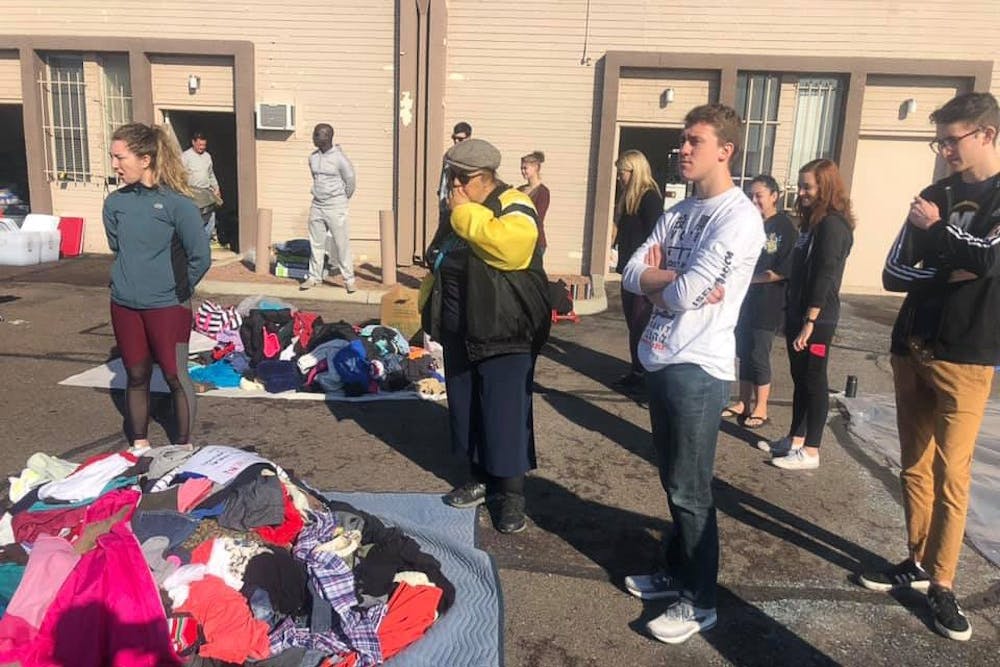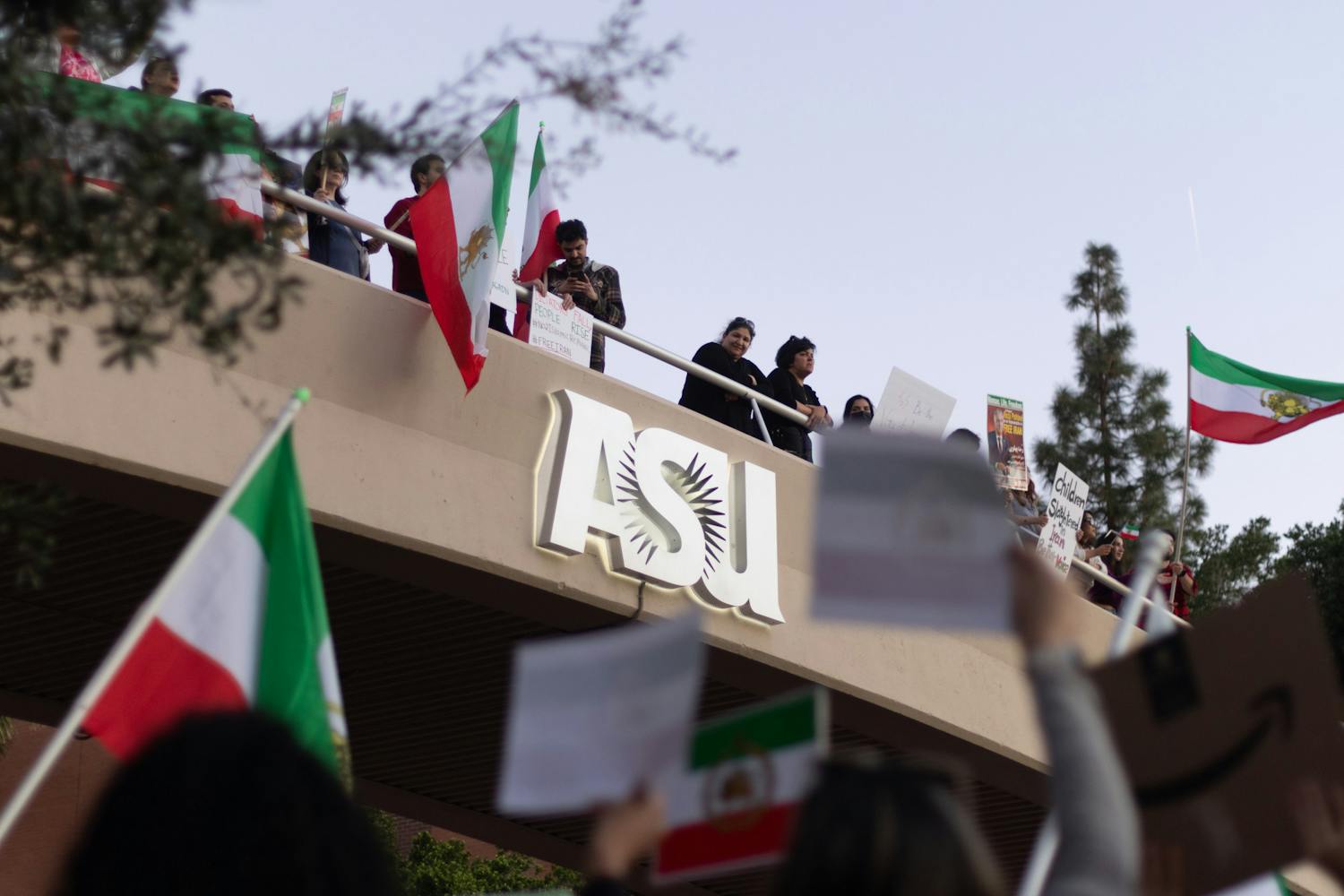As government immigration agencies struggle to process and provide shelter for asylum seekers, ASU student organizations are working alongside the Maricopa County Democratic Party to collect and distribute supplies to asylum seekers resettled by Immigration and Customs Enforcement.
Since October 2018, ICE has released nearly 12,000 people to churches and non-profit organizations across Arizona to offload the burden on its detention centers, according to azcentral. These families typically stay in the care of these organizations for just a few days, after which they travel to join friends or family members elsewhere in the country while waiting for their immigration hearings, according to Cronkite News.
The releases come after the backlog in U.S. immigration courts surpassed one million cases in fiscal year 2018, according to the Transactional Records Access Clearinghouse, with only around 400 judges to handle them.
With ongoing national negotiations over border control and immigration, Tucson-based immigration lawyer Mo Goldman said it doesn't look like things will get any better, even if there were more judges to handle the cases.
"Obviously, things are not going to speed up at this point," he said. "There's been movement to get more immigration judges in place, but there's a million cases in the backlog, and it's growing by the day ... so if you're going to add 75 judges, it won't cause a huge dent to the backlog."
Several ASU clubs organized donation efforts to support asylum seekers who are temporarily staying at Arizona churches. The clubs partnered with the Maricopa County Democratic Party to ensure that donated clothing would be delivered to churches who requested it.
Activism for Our Lives at ASU, a campus group affiliated with the national March for Our Lives movement, held a clothing drive at the Memorial Union on Jan. 15 to help families in need who are staying at the churches.
The club’s mission is to extend its focus beyond the national organization's movement for increased gun safety, said Jacob Sumner, who is the club's president and a freshman majoring in computer science.
“We decided it'd be a good idea to help the community, and we all think it's very important to make our community a better place for everyone here," Sumner said.
The Young Democrats at ASU also collected clothing to be distributed to families on Jan. 13 and Jan. 20 as part of their "Service Sunday" program. The latter of the two events was in partnership with ASU's chapter of Planned Parenthood Generation Action, and the two groups plan to host similar events once a month for the rest of spring semester.
Maricopa County Democratic Party chairman Steven Slugocki said that approximately 12 local churches are taking in refugees and asylum seekers, and that the party decided to be a point of contact for collecting donations on behalf of the local community.
"We started to take in donations in our office, and we partnered with local groups and we were basically a central location for everyone to drop off items," Slugocki said.
But some of the churches hosting families have received backlash from groups such as the Patriot Movement, who have protested in front of the churches acting as sanctuaries. The group has previously argued that the churches are violating federal law by hosting families, and that the country should address the needs of its homeless population before helping others.
The Patriot Movement declined to speak to the State Press for this story.
David Wells, a political science professor at ASU, said that people released by ICE into the country have ankle bracelets that monitor their movements, and that ICE is in regular communication with the churches and NGOs that provide support to families.
"The churches are simply helping the U.S. government out and are not involved in any sanctuary movement,” Wells said. “It's an intimidation tactic against the churches to not participate in helping the U.S. government."
The number of migrant families seeking asylum in the U.S. has increased over the last year. According to U.S. Customs and Border Protection, there were more than 107,000 migrants arriving at the border as families in fiscal year 2018 — a 42 percent increase from the previous fiscal year.
Goldman said that asylum seekers entering the U.S. have to pass a burden of proof assessment to demonstrate credible fear of going back to their countries of origin before their case is reviewed by an immigration judge.
With the ongoing negotiations over border control and immigration, Goldman said it doesn't look like things will get better soon.
"The problem that we see now is that the mass majority of these asylum seekers are held in detention while they go through the process, which is a double the hardship on them after they've gone through their own hardships and are now sitting in a jail cell basically," he said.
Catherine Corbett, who is a senior majoring in communications and media analysis and the president of Planned Parenthood Generation Action at ASU, said that the group will volunteer to help asylum seekers for as long as they have to.
"It's really sad that we have to be volunteering for something like this at all ... that our country is displaying such profound acts of racism and hate. It's completely inhumane and just breaks my heart," Corbett said in a text message.
"It's really important for us to stand up and fight these issues together," she said.
Reach the reporter at wmelhem@asu.edu or follow @wissmel on Twitter.
Like The State Press on Facebook and follow @statepress on Twitter.




